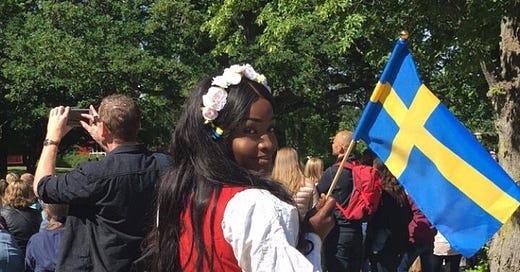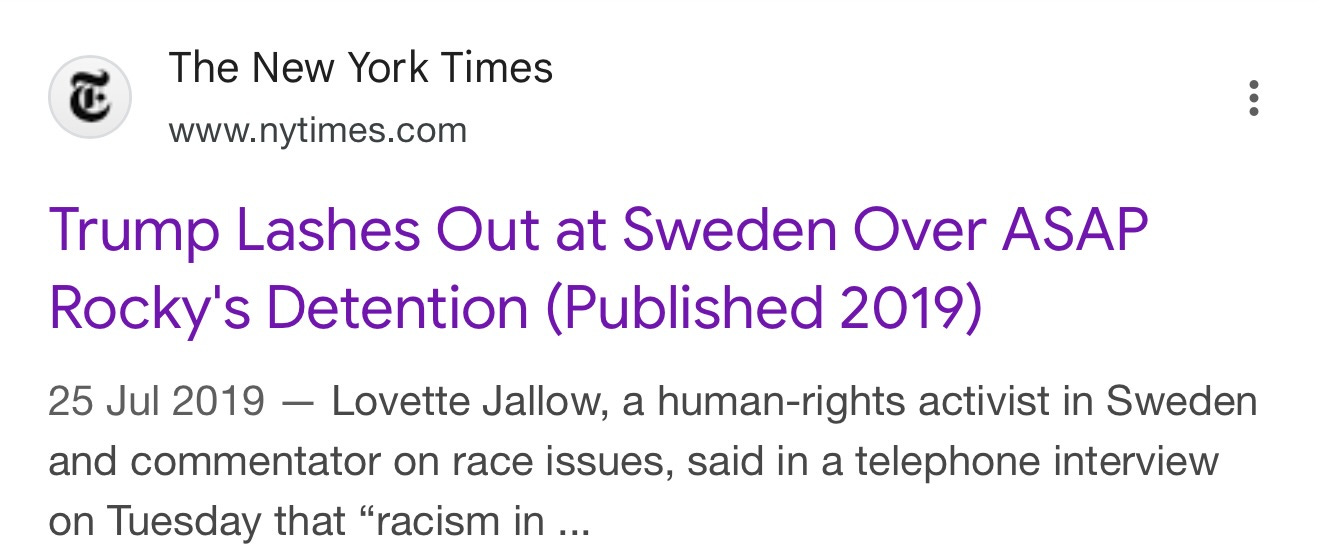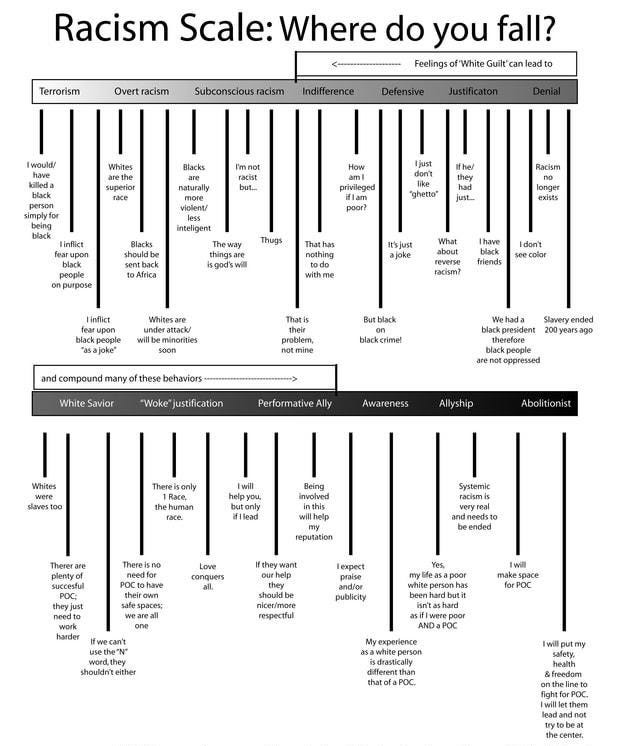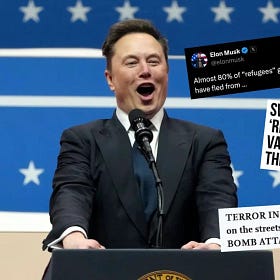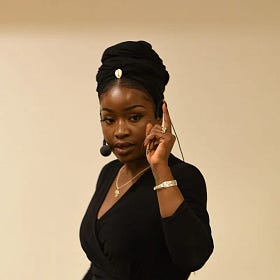Why Sweden’s Reputation as an Inclusive Country is Misleading
Sweden promotes itself as progressive and inclusive, but why do so many foreigners struggle to belong? The reality of workplace bias, social exclusion, and the silent barriers to integration.
The Myth of Swedish Inclusion: A Reality Check for Foreigners Expats and Migrants alike
Sweden is often praised as one of the world’s most progressive countries, known for its free healthcare, parental leave, gender equality, and high living standards. Reports rank it as a leader in democracy and human rights, reinforcing the image of a society where anyone can succeed—if they follow the rules.
But for many foreigners and expats, including white Western professionals, the reality is starkly different. Even those who speak Swedish, integrate into the workforce, and adhere to social norms often find themselves on the outside looking in. Unlike countries that actively work actively on inclusion, Sweden relies on passive exclusion—hard to prove but impossible to ignore.
What Expats and Migrants Are Really Saying About Sweden
This is not a new conversation, but it’s gaining traction as more foreigners speak openly. From Western professionals to non-European migrants, the struggles remain strikingly similar:
Social isolation, even after years in the country
Barriers to friendship and networking
Career stagnation, despite high qualifications
Hiring discrimination and nepotism dominating the job market
A refusal to acknowledge systemic exclusion
Sweden prides itself on equality, but there’s an unspoken hierarchy at play. Nordic-born foreigners might get a pass. EU citizens might find it slightly easier. But for those from outside the Western bubble, even with the right credentials, they remain “the other” racialized.
The Illusion of Swedish Inclusion
Sweden’s inclusion model is built on optics, not reality.
Foreigners often arrive full of optimism, believing that effort—learning the language, adapting to customs, and integrating into the workplace—will eventually lead to belonging.
By year two, reality sets in. Social invitations remain rare, networking is nearly impossible, and career growth is tied to personal connections rather than qualifications.
White Western expats, used to mobility and privilege elsewhere, are often blindsided by exclusion for the first time. Meanwhile, migrants from outside the West—especially racialized individuals—face an even more entrenched glass ceiling.
Through my advocacy, consultancy, and workplace inclusion work in Sweden, I’ve seen how Sweden’s reputation for progressiveness rests not on active inclusion, but on silent exclusion. Unlike countries that address structural bias head-on, Sweden simply makes no space for outsiders.
Sweden’s reputation for progressiveness rests not on active inclusion, but on silent exclusion. Sweden does not reject foreigners outright—it simply does not make room for them.
The Swedish Social Code: The Invisible Barrier to True Belonging
Sweden does not openly reject outsiders, yet full integration remains elusive. Even those who speak fluent Swedish and conform to social norms find themselves held at a distance. The exclusion is not explicit—it’s cultural, systemic, and deeply ingrained.
What makes belonging so difficult? Sweden’s social code is unwritten, yet rigidly enforced. It thrives on sameness, gatekeeping, and institutionalized conflict avoidance—a system designed to preserve comfort for Swedes rather than create space for outsiders. These barriers are rarely discussed but define life in Sweden for foreigners.
When I break this down for newcomers, they stare at me like I’m speaking Russian—meanwhile, I’m handing them the playbook. They assume I’m exaggerating, as if I haven’t spent years researching, consulting, and exposing Sweden’s exclusion in real time (and frustrating quite a few racists along the way).
I don’t say this as someone guessing from the sidelines—as part of the 35% of Sweden’s population with one or both parents born outside Europe, who is also an expert on systemic exclusion, racial bias, Swedish exceptionalism. I have seen, documented, and publicly dissected how deeply ingrained this issue is, both in workplaces and social spaces.
But still, many believe that if they just perfect their Swedish, eat enough IKEA meatballs, and say tack så mycket in the right tone, they’ll unlock acceptance. What they’re about to realize is how aggressively Sweden maintains its PR image—one so carefully managed it could be a state-sponsored illusion.
Sweden’s Global Image vs. Reality
Sweden’s carefully curated international reputation is built on policy rankings and diplomatic narratives. Yet for many foreigners, including white Western professionals, this image does not reflect reality. Behind the polished PR lies a rigid system where housing, jobs, and social integration remain inaccessible to outsiders.
Sweden promotes diversity on paper, often gender equality for white women but its reality is exclusionary. The country refuses to collect racial or ethnic data, assuming that if discrimination isn’t measured, it doesn’t exist. This allows systemic bias to persist while maintaining a progressive facade.
The first year in Sweden often begins with optimism. Newcomers believe that with effort—learning the language, adapting to cultural norms, and integrating into the workplace—they will eventually feel at home.
By the second year, a different reality sets in. Social invitations remain rare, networking feels inaccessible, and professional opportunities seem reserved for insiders. White expats from the UK and US, accustomed to ease of mobility elsewhere, are often blindsided by exclusion for the first time.Through my work with global organizations, from corporate leadership teams to policymakers and academic institutions,
I have repeatedly observed how Sweden’s model of "progressiveness" relies not on active inclusion, but on passive exclusion. Sweden does not outright reject foreigners—it simply makes no space for them.
Unlike countries that recognize structural barriers and work toward equity, Sweden operates on the assumption that neutrality equals fairness. The result? A system that rewards sameness and silently filters out those who do not fit the mold. Many highly skilled professionals arrive believing that competence and effort will lead to belonging. Instead, they encounter an invisible social gatekeeping system where access—both socially and professionally—is quietly withheld.
At this point, many start asking:
If even white, European professionals struggle to integrate, what chance does anyone else have?
The Silence Culture: Why Swedes Avoid Confrontation (Even About Racism)
Sweden is a consensus-driven society, meaning conflict is avoided at all costs. This results in passive-aggressive communication, indirect exclusion, and vague social norms, making it even harder for foreigners to understand why they struggle to integrate.
When it comes to race and discrimination, this silence is particularly harmful:
Swedes do not engage in direct conversations about racism.
Racism is dismissed as an “American problem.”
Even when discrimination is evident, it is rarely confronted.
For foreigners, especially racial minorities, this silence can feel like complicity. The refusal to acknowledge exclusion means even well-meaning Swedes remain bystanders rather than allies.
Sweden’s Strategy: If You Don’t Measure It, You Don’t Have to Fix It
Sweden claims to be an equal and progressive society, yet its refusal to acknowledge systemic exclusion keeps discrimination invisible. Unlike countries that track racial disparities, Sweden’s colorblind approach assumes that not seeing race means not being racist. This belief benefits only those who have never faced exclusion.
Swedes avoid difficult conversations about racism, exclusion, and bias. If the system works for the majority, those left out are dismissed as anomalies. This mentality, rooted in conflict avoidance and Swedish exceptionalism, assumes fairness is automatic rather than something that requires work. As I have repeatedly highlighted through my public advocacy, this belief is not just false—it is harmful.
Nepotism runs deep in Sweden. It’s not what you know—it’s who you know. Career growth is based on having the right Swedish networks. This is exactly why I left for England at 19—I wasn’t about to do Jantelagen nonsense with my career, personal life nor friendships.
ASAP Rocky’s Arrest and Sweden’s Racial Denial
Sweden’s global reputation took a hit in 2019 when American rapper ASAP Rocky was arrested in Stockholm. The case sparked international outrage, with many noting that he was jailed for weeks for defending himself, while white perpetrators of violent crimes routinely walk free.
The New York Times and global media outlets highlighted how the case exposed Sweden’s deeply ingrained racial bias—something Black Swedes have spoken about for years, only to be dismissed by Swedish institutions. My work advocating for Black Swedes facing discrimination in the legal system reflects the same patterns:
Racial profiling exists, but without data, it’s “invisible.”
Hate crimes happen, yet authorities hesitate to prosecute white perpetrators.
Victims of discrimination must “prove” their claims, but Sweden refuses to collect the data that would validate them.
Sweden once had a Race Biology Institute (1922-1958)—one of the first state-run racial categorization programs. Today, Sweden avoids its racial history, rebranding its past and pretending race doesn’t exist. Insisting that its gives us flashbacks and potential ptsd and thus not measuring discrimination means it’s not happening.
“There’s No Such Thing as a Non-Racist”
But you see…Sweden’s refusal to engage with systemic racism is based on a fundamental misunderstanding of how racism works. This is why people who struggle with cPTSD go to exposure therapy and revisit their traumas with assistance. Many Swedes believe that as long as they don’t personally say or do something racist, they are free from bias.
But as I have said before:
There’s no such thing as a non-racist—because racism isn’t a personality trait, it’s a system.
Think of it like air pollution—if you live in a polluted city, you’re breathing in toxins whether you like it or not. Some people contribute more, some try to clean the air, but no one is untouched by it.
Sweden struggles with this concept because it equates racism with morality—seeing it as something only “bad people” engage in. But in a racist society, everyone absorbs biases, benefits from certain structures, or upholds them—often without realizing it.
It’s not about being racist or not—it’s about how racist you are and what you do about it. Society feeds bias and prejudice daily, giving some the power to enact harm based on privilege.
Until Sweden moves beyond colorblindness and neutrality, it will remain a country that believes it is progressive by default—as if fairness and inclusion are inherent traits rather than values that require effort, accountability, and systemic change.
Final Thought: Sweden’s Reputation vs. Reality
Sweden has built an international image of inclusivity, but its refusal to measure discrimination, acknowledge bias, and confront exclusion makes it one of the most difficult places for foreigners to integrate.
Until Sweden moves beyond performative neutrality and colorblindness, it will remain a country that mistakes progressive branding for real inclusion.
This is Part One of my Sweden & Scandinavia series, where I continue exposing the PR machine behind Nordic exceptionalism. In the next part, I’ll dissect how Sweden’s "diversity" policies actively reinforce exclusion.
Why Sweden Refuses to Call White Terrorism by Its Name
Silencing Voices: Sweden’s Reluctance to Confront Its Own Racism
7 Hard Truths About DEI and Neurodiversity in Sweden - From Lovette Jallow
Navigating DEI, Autism, and ADHD as a Black Woman in the Nordics: Challenges and Solutions
Who is Lovette Jallow? | Award-Winning | Author | DEIBJ & Neurodiversity Expert
Lovette Jallow is one of Scandinavia’s most influential voices on systemic racism, intersectional justice, and human rights. A nine-time award-winning author, keynote speaker, lecturer, and humanitarian, she specializes in neurodiversity, workplace inclusion, and structural policy reform.
As one of the few Black, queer, autistic, ADHD, and Muslim women working at the intersection of human rights, systemic accountability, and corporate transformation, Lovette brings an unmatched perspective rooted in both lived experience and professional expertise. Her work bridges the gap between theory, research, and action, helping organizations move beyond performative diversity efforts toward sustainable, structural change.
She has worked across Sweden, The Gambia, Libya, and Lebanon, tackling institutional racism, legal discrimination, and refugee protection. Her expertise has been sought by global publications like The New York Times, on high-profile legal cases, and by international humanitarian organizations, where she has provided critical insights on racial justice, policy reform, and equity-driven leadership.
As the founder of Action for Humanity, Lovette collaborates with businesses, policymakers, and institutions to develop equity-centered solutions that are practical, measurable, and embedded in long-term strategy.
Her work isn’t just about raising awareness—it’s about creating measurable, lasting change in workplaces, policies, and communities.
📢 Stay connected:
🔗 Website: lovettejallow.com
📢 LinkedIn: linkedin.com/in/lovettejallow
📸 Instagram: instagram.com/lovettejallow
🎥 YouTube: youtube.com/@jallowlovette
📝 Substack: open.substack.com/pub/lovettejallow
🐦 Twitter/X: twitter.com/lovettejallow
🌍 Action for Humanity: lovettejallow.com/action-for-humanity
📢 Action for Humanity Instagram: instagram.com/action4humanity_se
📘 Bluesky: bsky.app/profile/lovettejallow.bsky.social


